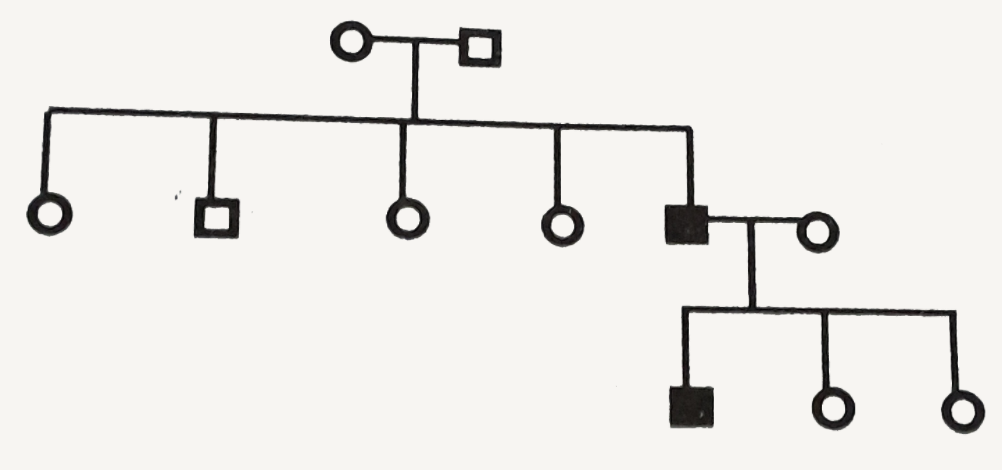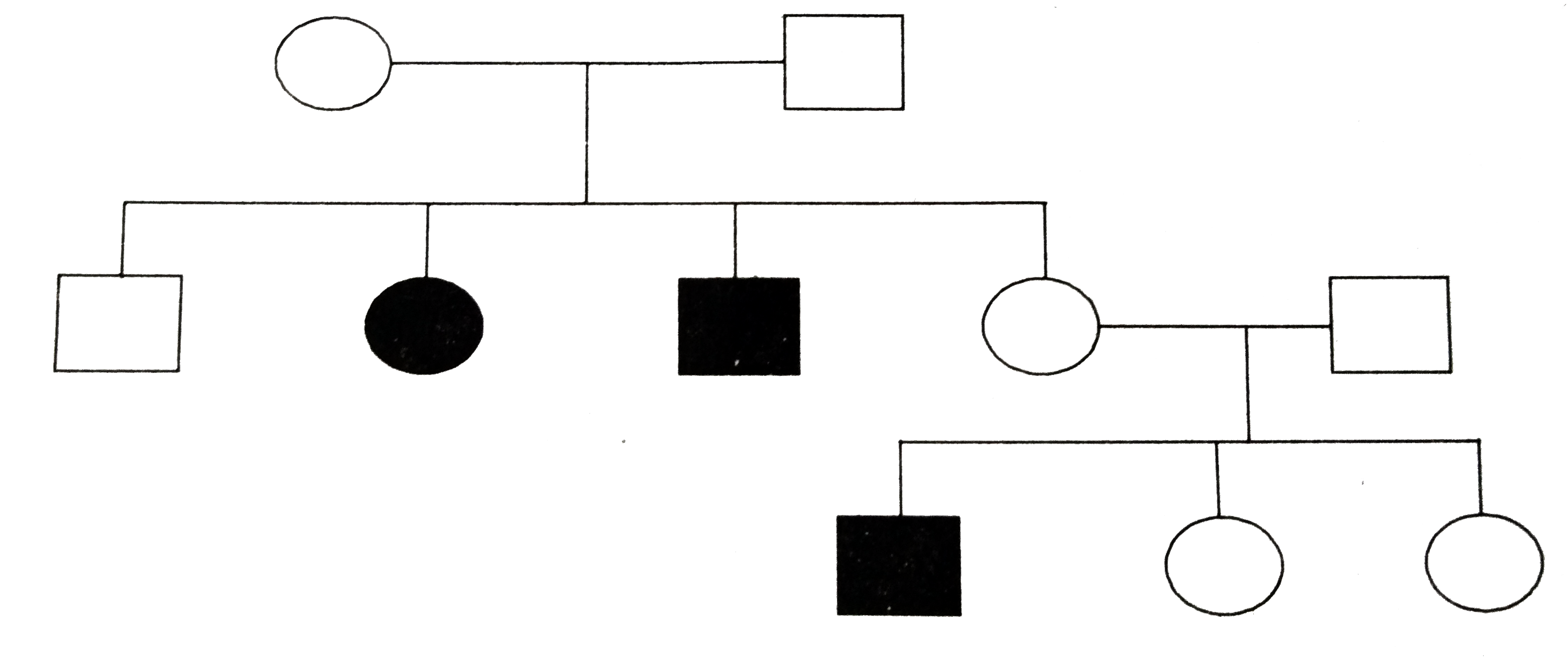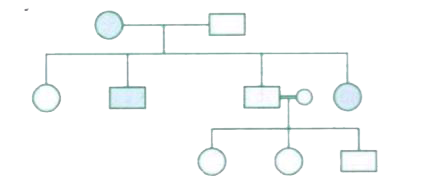In the following pedigree chart, the mutant trait is shaded black. The gene responsible for the trait is

Dominant and sex linked
Dominant but autosomal
Y-linked
Recessive and autosomal
The correct Answer is:D
Step by step video & image solution for In the following pedigree chart, the mutant trait is shaded black. The gene responsible for the trait is by Biology experts to help you in doubts & scoring excellent marks in Class 12 exams.
Updated on:21/07/2023Topper's Solved these Questions
- BIOLOGY AT A GLANCEBOOK - ALLENCHAPTER - BIOLOGY AT A GLANCEEXERCISE - Molecular basis of inheritance
46 Videos
- BIOLOGY AT A GLANCEBOOK - ALLENCHAPTER - BIOLOGY AT A GLANCEEXERCISE - Domestication of plant
26 Videos
- BIOLOGY AT A GLANCEBOOK - ALLENCHAPTER - BIOLOGY AT A GLANCEEXERCISE - Reproduction In Plants
25 Videos
- BIODIVERSITY AND CONSERVATIONBOOK - ALLENCHAPTER - BIODIVERSITY AND CONSERVATIONEXERCISE - S
18 Videos
- BIOLOGY AT A GLANCE (ZOOLOGY )BOOK - ALLENCHAPTER - BIOLOGY AT A GLANCE (ZOOLOGY )EXERCISE - EXERCISE
207 Videos
Similar Questions
Knowledge Check
In the given pedigree chart, the trait shown is
 AAutosomal dominantBAutosomal recessiveCX-linkedDY-linked
AAutosomal dominantBAutosomal recessiveCX-linkedDY-linkedStudy the following pedigree. The transmission of the trait indicates
 Aautosomal dominanceBmaternal imprintingCpaternal imprintingDmitochondrial inheritance
Aautosomal dominanceBmaternal imprintingCpaternal imprintingDmitochondrial inheritance
Which of the following is not a dominant trait in edible pea ?
View SolutionWhich of the following is not a trait of marsupials ?
View SolutionObserve the following pedigree charts :
<imga≤ocr_imageload∈g=lazysrc=https://d10lpgp6xz60nq.cloudfront.net/physics_images/NTA_NEET_SET_61_E03_037_Q01.pngwh=80%mx-autosty≤=background:white;>
Find the incorrect match from the following.
View SolutionWhich of the following pedigree charts does not represent inheritance of disorders like myotonic dystrophy?
View SolutionA gene influencing many traits is
View SolutionStudy the given pedigree chart and answer the queation that follow.

(a) In the trait recessive or dominant ?
(b) Is the trait sex-linked or autosomal ?
(c) Give the genotypes of the parants in generation I and of their third and fourth child in generation.
View Solution


